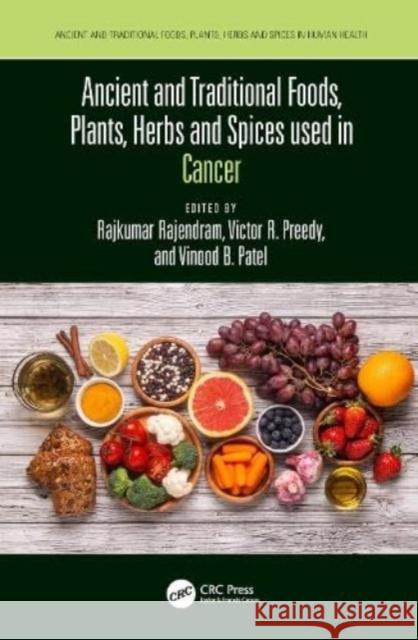Ancient and Traditional Foods, Plants, Herbs and Spices used in Cancer » książka
Ancient and Traditional Foods, Plants, Herbs and Spices used in Cancer
ISBN-13: 9781032192536 / Angielski
Ancient and Traditional Foods, Plants, Herbs and Spices used in Cancer
ISBN-13: 9781032192536 / Angielski
(netto: 763,37 VAT: 5%)
Najniższa cena z 30 dni: 780,79
ok. 22 dni roboczych
Dostawa w 2026 r.
Darmowa dostawa!
The use of different foods, herbs and spices to treat or prevent disease has been recorded for thousands of years. Egyptian papyrus, hieroglyphics and ancient texts from the Middle East have described the cultivation and preparations of herbs and botanicals to “cure the sick”. There are even older records from China and India. Some ancient scripts describe the use of medicinal plants which have never been seen within European cultures. Indeed, all ancient civilizations have pictorial records of different foods, herbs and spices being used for medical purposes. However, there are fundamental questions pertaining to the scientific evidence for the use of these agents or their extracts in modern medicine.There have been considerable advances in scientific techniques over the last few decades. These have been used to examine the composition and applications of traditional cures. Modern science has also seen the investigation of herbs, spices and botanicals beyond their traditional usage. For example, plants which have been used for “digestion” or “medical ills” since time immemorial are now being investigated for anti-cancer properties or their toxicity, using high throughput screening. Techniques also include molecular biology, cellular biochemistry, physiology, endocrinology, and even medical imaging. However, much of the material relating to the scientific basis or applications of traditional foods, herbs, spices and botanicals is scattered among various sources. The widespread applicability of foods or botanicals are rarely described and cautionary notes on toxicity are often ignored. This is addressed in Ancient and Traditional Foods, Plants, Herbs and Spices Used in Cancer.
The use of different foods, herbs and spices to treat or prevent disease has been recorded for thousands of years. Egyptian papyrus, hieroglyphics and ancient texts from the Middle East have described the cultivation and preparations of herbs and botanicals to “cure the sick”. There are even older records from China and India. Some ancient scripts describe the use of medicinal plants which have never been seen within European cultures. Indeed, all ancient civilizations have pictorial records of different foods, herbs and spices being used for medical purposes. However, there are fundamental questions pertaining to the scientific evidence for the use of these agents or their extracts in modern medicine.There have been considerable advances in scientific techniques over the last few decades. These have been used to examine the composition and applications of traditional cures. Modern science has also seen the investigation of herbs, spices and botanicals beyond their traditional usage. For example, plants which have been used for “digestion” or “medical ills” since time immemorial are now being investigated for anti-cancer properties or their toxicity, using high throughput screening. Techniques also include molecular biology, cellular biochemistry, physiology, endocrinology, and even medical imaging. However, much of the material relating to the scientific basis or applications of traditional foods, herbs, spices and botanicals is scattered among various sources. The widespread applicability of foods or botanicals are rarely described and cautionary notes on toxicity are often ignored. This is addressed in Ancient and Traditional Foods, Plants, Herbs and Spices Used in Cancer.











